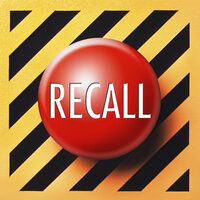Tesla Recalls 30,000 Vehicles in China

Tesla has issued a recall for over 30,000 Model S and Model X vehicles in China, the State Administration for Market Regulation told the press. The issues are related to two defects in the suspension, although Tesla warned that some vehicles may have both. The defects involve just about every Tesla vehicle sold in China between 2013 and 2018. The recall does not include vehicles that are being manufactured in China.
The issue was described as a weakness in the suspension that could lead to a cracked linkage after impact. On impact, the front suspension will have an initial crack that can lead to the ball stud breaking. In a worst-case scenario, the “ball-end cone seat can come out of the steering knuckle” causing the driver to lose control of the car, leading to accidents, injuries, and even death.
There have been no injuries associated with these defects as of yet. Tesla will be required to replace “the front suspension rear link and the rear suspension upper link” free of charge for all owners with affected vehicles.
Why Just China?
The question that many folks with knowledge of the auto industry are asking is: Why is the recall only being conducted in China. The vehicles that were exported to the Chinese market during that time period were made in the U.S. and there is no apparent difference between vehicles made in the U.S. for the U.S. market and vehicles that were exported for sale on the Chinese market. So if the recall is being conducted in China, then why isn’t there a similar recall in the U.S., Europe, or any other market?
Interestingly, the National Highway Traffic Safety Administration (NHTSA) investigated possible issues with the Tesla suspensions but later determined that there were “no defects”. Now that China has issued a recall on these vehicles, it remains to be seen whether or not the NHTSA will revise their conclusions or double down on their opinion that the Tesla suspensions don’t have an issue.
Is This Really a Defect?
The Chinese say that the suspension systems can break “after a large initial impact”. In most cases, if there is a crash significant enough to cause a “large initial impact”, the suspension would likely need to be replaced anyway. In other words, it isn’t strange that the suspension would “crack” after an “impact”.
On the other hand, the recall only involves vehicles that were built up to 2017. That seems to indicate that Tesla did change some of its parts to fix the “weakness” in the components that could lead to suspension failure while the car is in motion.
So, the issue remains a mystery.
Talk to a Defective Auto Parts Liability Lawyer
The Coral Gables tire defect attorneys at Halpern, Santos & Pinkert litigate cases against auto manufacturers who produce defective parts that cause injury to our clients. If you’ve been injured in a car accident and a defective auto part contributed to your injury, call us today to schedule a free consultation.
Resource:
electrek.co/2020/10/23/tesla-recallingl-model-s-model-x-china-suspension-issue/
https://www.tiredefectattorney.com/takata-air-bag-inflator-has-another-kill-on-its-name/
